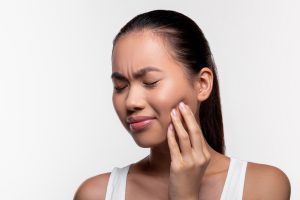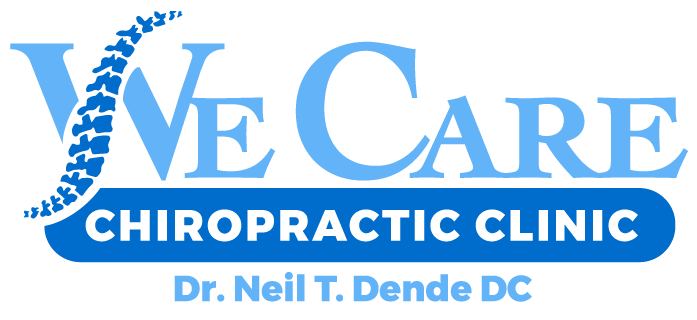How To Cure TMJ Permanently
WE CARE CHIROPRACTIC
24/7 Emergency Auto Injury Appointments In Glendale, AZ
Temporomandibular disorder (TMD) is more commonly referred to as TMJ. TMJ is a form of jaw pain that is very common. The good news is this issue can be cured permanently. Find out how below!
What Is TMJ?
TMJ is a blanket term for acute or even chronic inflammation of the temporomandibular joint, which connects the mandible to your skull. TMJ can refer to a variety of conditions that affect these joints, facial nerves and jaw muscles.
The jaw joint is known as the TM joint, which connects the lower jaw bone (mandible) to the temporal bones of the skull, found on each side of the head. The muscles that control the joints while attached to the mandible are used to move the jaw. The TM joint can work in two different ways. The primary function is to act as a hinge used for opening and closing the mouth. The second way is a sliding motion referred to as translation, which moves the jaw back and forth. This motion is what makes yawning, singing and chewing possible.
Whenever you open your mouth, the round upper ends of the mandible will glide along the joint socket, located at the base of the jaw. Closing your mouth allows the ends to go back to their normal resting position. When the ends of the mandible slide back into position, you may hear a noticeable clicking sound. This noise is a signature sound of TMJ.
What Are The Signs Of TMJ?
Unfortunately, TMJ is common among younger individuals. Causes can include teeth grinding, nail biting, direct injury to the jaw, joint disease such as arthritis, autoimmune diseases and infections. According to TMJ, approximately 12% of the U.S. population is dealing with TMJ at any given time.
TMJ symptoms include the following:
- Headaches.
- Neck pain.
- Ear pain.
- Jaw soreness.
- Jaw pain when chewing.
- Trouble opening and closing mouth.
- Jaw stiffness.
- Dizziness.
- Tinnitus.
- Sensitive teeth.
- Clicking sound when opening mouth.

How To Cure TMJ
Yes, it is possible for TMJ symptoms to disappear altogether, but this is not a common occurrence. Whenever you are dealing with consistent TMJ pain, it’s best to seek professional medical help. Follow these three tips below to manage your pain.
Take Precautions At Home
If, for instance, you do not plan on seeing a professional, there are a few preventative steps you can take while at home. Eat only soft foods to give your jaw a break. You can also apply a cold compress and moist heat to help reduce pain and inflammation. There are some over-the-counter medications for TMJ pain.
Custom-Made Splints
Custom-made splints are designed to be fitted either over your upper or lower teeth. These splints will act as cushions between your teeth, necessary to curb any clenching or grinding motions. It’s recommended to keep using the splints even after the pain subsides. Help the joint to fully recover by leaving the splints in for an extra 2-3 days.
Seek Professional Help
Medical professionals, such as chiropractors and physical therapists can work with you to resolve this issue. Acupuncture and massage therapy can also help.
Can A Chiropractor Cure TMJ?
Instead of just dealing with or covering up the pain, you’ll want to get this issue corrected. The good news is a chiropractor can help fix this issue! Even though an exact cause may not be identified, it is understood that the alignment of your spine plays a huge role in TMJ pain. This means the way your head sits will determine how your jaw moves.
The spine is made up of blocks of sorts called vertebrae. These blocks can stack up on top of one another. Discs are found in between the vertebrae. The spine runs from the pelvis to the base of the skull. This means the skull sits atop the spine, which is crucial for balancing the jaw. If the spine is not properly aligned, it can cause serious issues.
Whenever the jaw becomes imbalanced or moves irregularly, it puts stress on the temporomandibular joint. When this occurs, muscles within the area will tense up and become fatigued over time.
To properly treat the problem, you need to focus on the root cause: spinal misalignment. If you are experiencing misalignment and encountering problems with your jaw, focusing on the jaw will not improve your overall condition. As soon as the jaw hinge becomes tilted, no work you’ve had done on the teeth, jaw or cheeks will help at this point. It is strongly recommended to see a chiropractor to improve the spine.
A chiropractor can identify the cause of your TMJ pain, whether it’s from the TMJ muscles or the spine. The licensed professional can then treat the problem naturally without the need for medication(s) or surgery.
AT WE CARE CHIROPRACTIC, WE GOT YOUR BACK!

